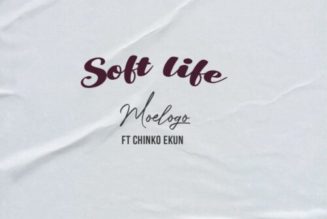
In 2016, a pair of 19-year-old pals from Winnipeg appeared on the reality television show Dragons’ Den—Canada’s version of Shark Tank—to seek funding for their music streaming startup, Musi. Baby-faced and clad in ill-fitting blazers, Aaron Wojnowski and Christian Lunny looked more like students practicing a presentation than entrepreneurs raising real cash. But that didn’t matter. They were a couple of years out of high school and had bootstrapped a music streaming app that was already competing with Spotify. The judges were all interested, and two of them offered to invest.
Musi hasn’t caught up to Spotify. But it has flourished even while other rivals wilted and Apple and Google jumped into music streaming. Musi regularly ranks in the top five music streaming apps on Apple’s App Store, and Sensor Tower, which tracks mobile app performance, estimates that it has been downloaded more than 66 million times since launching more than a decade ago, with 8.5 million downloads last year alone. That makes Musi larger than competitors Pandora, Audiomack, and Deezer, despite not offering an Android app. Musi was the top-grossing iOS app in North America in February 2024, based on estimated open programmatic ad revenue from the ad-fraud analytics platform Pixalate.
The app’s fan base trends young, and it’s popular among high schoolers. In one classroom of sophomores that WIRED surveyed at a Chicago high school, 80 percent used it to stream music. When asked why they liked it, they noted it’s free, doesn’t interrupt the music to play ads as Spotify’s free tier does, and has a broad catalog. The app offers an alternative to the subscription-dominated world of streaming entertainment, one especially appealing to people too young for full-time jobs.
Yet while Musi has many trappings of a startup success story, a closer look raises questions about its unusual business model, which the company says involves sourcing music from Google’s YouTube. Fans on social media have often asked questions like: “Is Musi legal?” and “What is the catch?” And the legality of Musi is now being questioned by record labels and music industry groups, WIRED has learned, over whether it has the rights to distribute and monetize the music users stream on its platform. Musi did not respond to requests for comment.
Many music industry insiders that WIRED contacted for this story had not previously heard of Musi. Those who had heard of it, though, often declined to speak on the record, citing potential future litigation.
The Recording Industry Association of America and the International Federation of the Phonographic Industry declined to comment on any potential litigation to WIRED. But at least one major label is considering legal action, according to sources in the industry.
After WIRED contacted Vevo, which distributes music videos on YouTube that sometimes appear inside Musi, it said that it plans to take action against the app. “We have recently been made aware of the music video app, Musi. Music videos on the app have not been licensed by Vevo, and Musi is using the Vevo mark on its service without license, and Vevo will take appropriate measures,” says company spokesperson Evelyn Swiderski.
Musi has faced objections to its business practices before. In October 2019, the company filed suit against an online ad network, alleging that it had withheld payments owed for ads that ran within the Musi app. In November that year, the ad network filed a counter-complaint alleging that it stopped payments after discovering Musi’s business was fraudulent. “Musi was knowingly and illegally ripping music off from YouTube,” the counter-complaint said, alleging that when advertisers found out, it lost over $7 million. A judge granted a request from Musi to dismiss the case without prejudice in 2020.
Cherie Hu, the founder of the music-business research network Water & Music, described Musi’s interface as utilitarian. It’s a place to listen to music and make playlists, and that’s it. Users don’t see song lyrics, information about upcoming concerts, or any features hinting at collaborations or partnerships with artists. “It’s a very generic way of curating and presenting music,” she says. Even after more than a decade in operation, it still feels more like a bright CS student’s senior project rather than a professional product.
Musi claims not to host the music videos its users stream, instead emphasizing that these videos come from YouTube. Those videos appear within Musi’s own barebones interface, but some flaunt their origins with watermarks from YouTube or Vevo. Users have to sit through video ads right when they open Musi and can then stream uninterrupted audio, but video ads play silently every few songs while the music continues. The app also displays banner ads, but users can remove all ads from the app for a one-time fee of $5.99.
Unlike its leading competitors, Musi doesn’t offer a download function, so the music stops without access to the internet. “Candidly, this won’t be a feature ever, due to restrictions set in place by YouTube,” a Musi support account told a fan last year who asked on Reddit if an offline mode was coming.
James Grimmelmann, a professor of digital and internet law at Cornell University, says the way Musi operates raises a number of questions. “Is this copyright infringement? A license for YouTube might not be a license to Musi,” he says. “Does this violate YouTube’s terms of service in a way that YouTube could cut it off?” As of now, the answers are unclear.
One unknown is whether playing a song on Musi will result in the same amount of income for an artist as it would if played directly on YouTube, especially as streaming payouts calculations rely on a variety of factors. The Musi support account on Reddit has told listeners that it does, without providing any further details or evidence. It is also unclear whether a rights holder who wishes to remove their music from Musi would have a clear mechanism to do so without also pulling it from YouTube.
By tapping into YouTube in this way, Musi appears to have pulled off something remarkable: Building a booming business in streaming music without taking on any of the legwork of striking deals with labels and distributors. That causes David Herlihy, a copyright lawyer and music industry professor at Northeastern University, to describe Musi as a “bottom feeder.” He believes the app has skated by thus far because it’s not technically breaking any laws. “It’s legal,” he says. “They’re linking to YouTube, and YouTube has licenses.”
Not everyone is so sure Musi is so legit. Though it had judges clamoring to partner up on Dragons’ Den, Lunny and Wojnowski didn’t close a deal. After a due diligence check, the “dragon” of their choice declined to invest. “I was advised that when companies such as Musi get to a critical size, they could be sued for past use by the publishers,” Dragons’ Den judge Joe Mimran told the Financial Post in 2016. “As great as the concept was, there was too much work to be done on the legal side that hadn’t been buttoned down.” Mimran did not respond to a request for comment.
Andrew Sampson, founder of Aurous, a free music streaming app that was shut down in 2015 following a lawsuit from the RIAA on behalf of record companies, also has doubts about Musi. Sampson—who doesn’t use Musi but says his 14-year-old sister is a fan—sees the app as similar in mission to his own project, although Aurous used file sharing rather than pulling music from other apps. “From what I can tell, this is definitely piracy,” he says. “I mean, it doesn’t look illegal, but they’re doing the same sort of moves as we did.” Although getting shut down made him appreciate how important it is for artists to get paid, he admits to a twinge of envy: “I’m kind of jealous that these guys are able to operate such a huge platform with no repercussions.”
YouTube’s terms of service for its API prohibit “advertising, sponsorships, or promotions that are placed on or within YouTube audiovisual content or the YouTube player without YouTube’s prior written approval.” It also prohibits modifying, replacing, and blocking advertisements served by YouTube or YouTube API services.
It is hard to square those terms with the way Musi appears to replace YouTube advertisements with its own, or even to know for sure whether the app is using YouTube’s API. Musi’s support account on Reddit has sometimes used ambiguous language. “Musi works within the confinements of YouTube’s API restrictions,” the account assured a fan earlier this year. Recently, YouTube started cracking down on apps that use its API and block ads. It declined to answer when WIRED asked if this was a move provoked by Musi, but there don’t appear to be widespread reports of the app malfunctioning.
“We only allow third-party apps to use our APIs when they follow our terms of service,” YouTube spokesperson Jessica Gibby told WIRED in a statement. She declined to answer questions about its relationship with Musi.
Musi remains private and apparently small—its LinkedIn page lists “2-10 employees”—which means profits may flow to a handful of people. There is little public information about the structure of the company or who works there, but it appears to be financially successful. Pixalate has ranked the app as first or second iOS app in North America by revenue for the past two years and estimates it has raked in over $107 million in programmatic ad revenue in the region since January 2023. Musi has also been a top performer in the Asia-Pacific region, Europe, the Middle East, Africa, and Latin America, according to Pixalate.
Musi’s founders no longer list themselves as working at the company on LinkedIn. Lunny does not mention the company at all on his profile, instead highlighting a digital ad agency he founded; messages sent to a Musi email address in his name did not bounce but got no reply, nor did emails sent to an email listed for his digital ad agency. Wojnowski’s LinkedIn profile says he left Musi early this year; he did not reply to an email to the address listed on his website.
According to CrunchBase, Musi’s current CEO is a Maryland-based man named LeBron Jones. WIRED got no response to a LinkedIn message sent to a profile in his name.
Whether or not Musi stays out of legal crosshairs, its success demonstrates how eager music fans are—especially young people—to avoid subscription fees from the streaming services that have become the default model for the industry.
The Napster era made digital music piracy mainstream, but the Spotify era was not its death. As WIRED reported earlier this year, music piracy is on the rise again—and many popular piracy sites allow people to download the audio from YouTube. Piracy of all digital media remains pervasive, in part because companies keep launching new subscription services and also because the costs of individual subscriptions keeps rising. Add in recent inflation and services that offer free or cut-price music look increasingly tempting, even for people who ordinarily balk at not paying for art.
Against that backdrop, it’s not surprising Musi is far from the only app of its kind. “If you look at the iOS app landscape, there are a lot of apps like this—Musi is just the top one,” says Dave Macli, the founder of music streaming service Audiomack. If Musi were to shut down, a bevy of replacements would likely sprout up. It has already spawned direct copycats: Musi imitators, using the same or similar names and logos, are frequently launched and then removed from the Google Play store for deceptive behavior. As of this writing, at least one Musi imitator remains available for download on Google Play. Its apparently satisfied customers have given it an average rating of 4.5 out of 5 stars.









